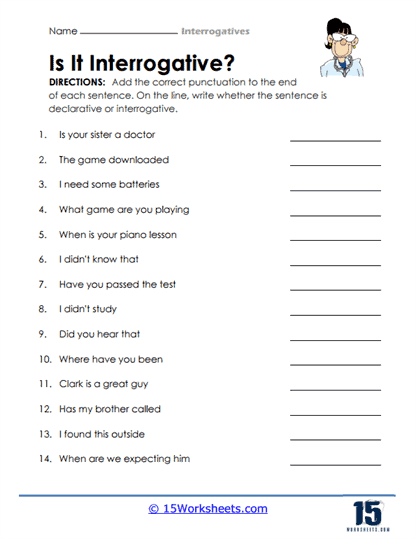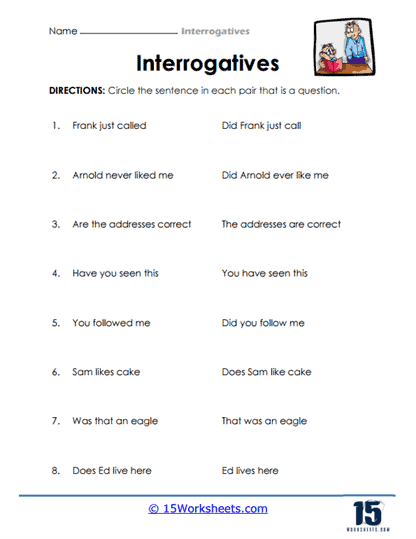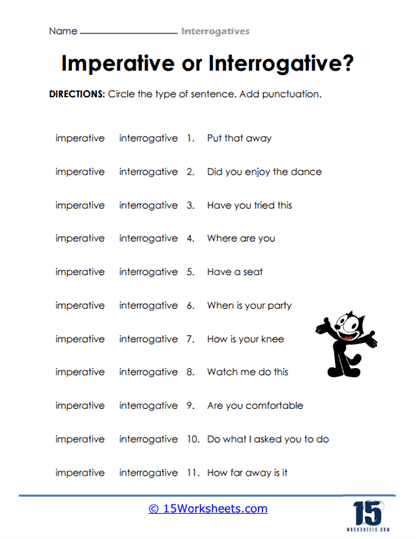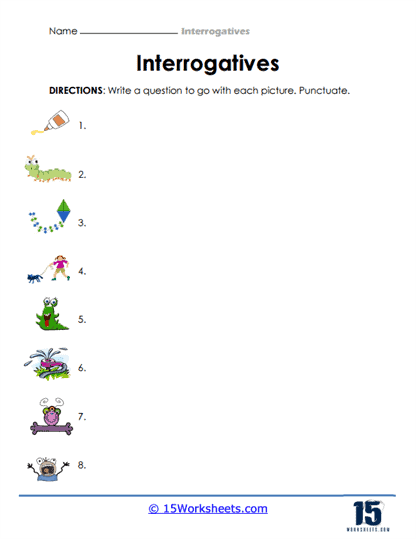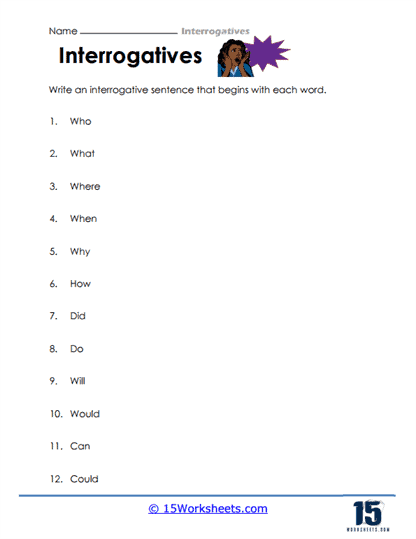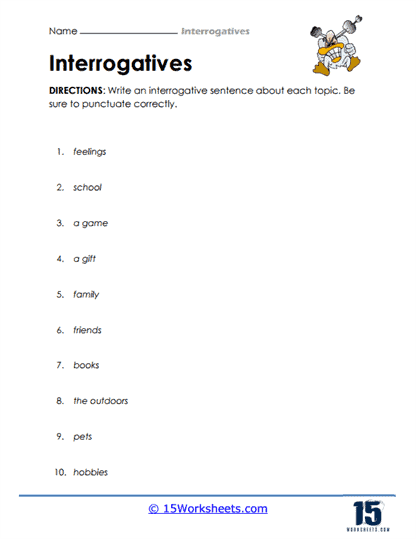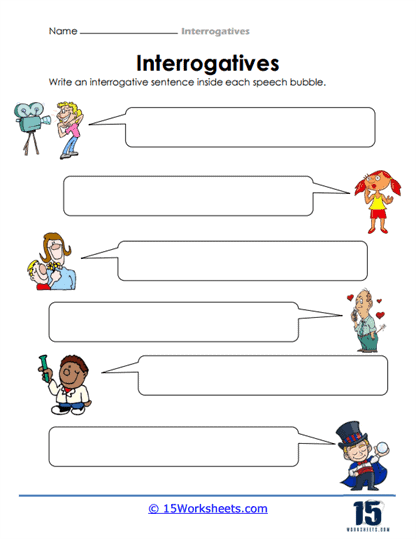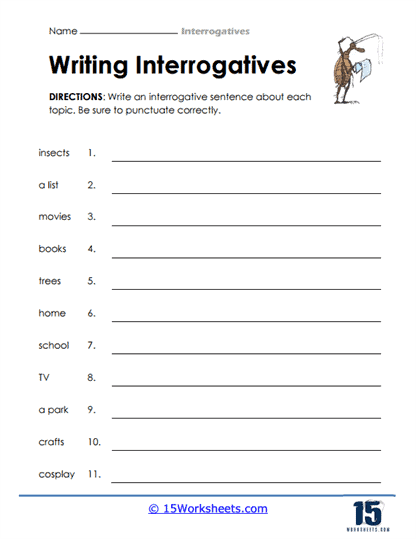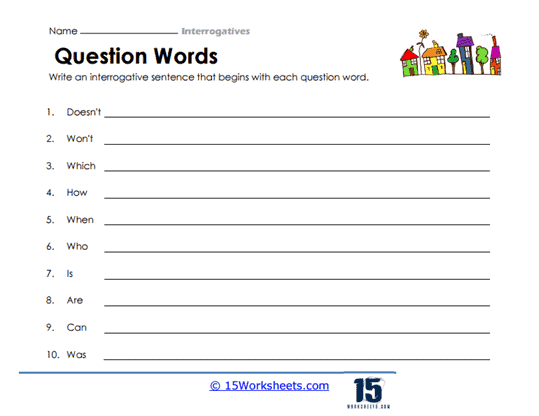Interrogatives Worksheets
All About These 15 Worksheets
These worksheets are a valuable tool for students learning about interrogatives, as they provide a structured and interactive way to practice using these types of questions. They also include a variety of exercises designed to help students develop their understanding of different question words and how to use them in context.
One worksheet includes a list of sentences, and students would have to determine if it’s an interrogative sentence or not. In other worksheets, students are encouraged to transform statements into interrogatives using inversion. By completing these worksheets, students will be able to:
- Identify statements from interrogatives;
- Transform declarative statements into interrogative sentences according to context;
- Understand the structure of questions;
- Create their own interrogative sentences with the correct punctuations;
- And distinguish interrogatives from imperatives.
What are Interrogatives and why do they matter?
Interrogatives are a type of word or sentence structure used to ask questions. In English, interrogatives typically begin with question words such as “who,” “what,” “when,” “where,” “why,” or “how.” Interrogatives can also be formed by changing the word order of a declarative sentence, such as in the case of a yes/no question.
Interrogatives are an important tool for communication, as they allow speakers to elicit information from others and to clarify their understanding of a given topic. They are used in a variety of settings, from casual conversation to formal interviews and interrogations. Understanding how to form and use interrogatives is an essential part of language learning and effective communication.
How to distinguish Interrogatives from Imperative and Declarative Statements
Interrogatives, declaratives, and imperatives are three types of sentences that are used to convey different meanings and functions in English. Here are some ways to distinguish between these types of sentences:
- Interrogatives – Interrogatives are sentences that are used to ask questions. They often begin with a question word, such as “who,” “what,” “when,” “where,” “why,” or “how.” Interrogatives typically end with a question mark, and they require a response from the listener or reader. For example: “Where is the nearest grocery store?”
- Declaratives – Declaratives are sentences that make a statement or assertion. They are used to convey information or express an opinion, and they often end with a period. For example: “The sun is shining today.”
- Imperatives – Imperatives are sentences that give commands or make requests. They are used to direct someone to do something, and they often begin with a verb in the base form. Imperatives can end with a period or an exclamation mark, depending on the tone of the sentence. For example: “Clean your room!”
To distinguish between these three types of sentences, it’s important to consider the function and tone of the sentence. Interrogatives are used to ask questions, declaratives are used to make statements, and imperatives are used to give commands or make requests. Paying attention to the sentence structure, punctuation, and word choice can also help you identify the type of sentence you’re dealing with.
How to transform Interrogative sentences
To change a declarative statement into an interrogative, you can use the following methods:
- Use question words – Start the sentence with a question word such as “who,” “what,” “when,” “where,” “why,” or “how” followed by the auxiliary verb and the subject. For example, “The party was fun” can be changed to “How fun was the party?”
- Use inversion – Invert the subject and auxiliary verb of the declarative statement. For example, “She is going to the store” can be changed to “Is she going to the store?”
To change an interrogative sentence into a declarative statement, you can use the following methods:
- Remove the question word – Remove the question word and rephrase the sentence as a statement. For example, “What is your name?” can be changed to “Your name is.”
- Use declarative word order – Rewrite the sentence with the subject followed by the verb and object. For example, “Did you finish your homework?” can be changed to “You finished your homework.”
It’s important to note that changing the type of sentence can also change the meaning or tone of the statement, so it’s important to consider the context and intent of the original sentence before making any changes.






